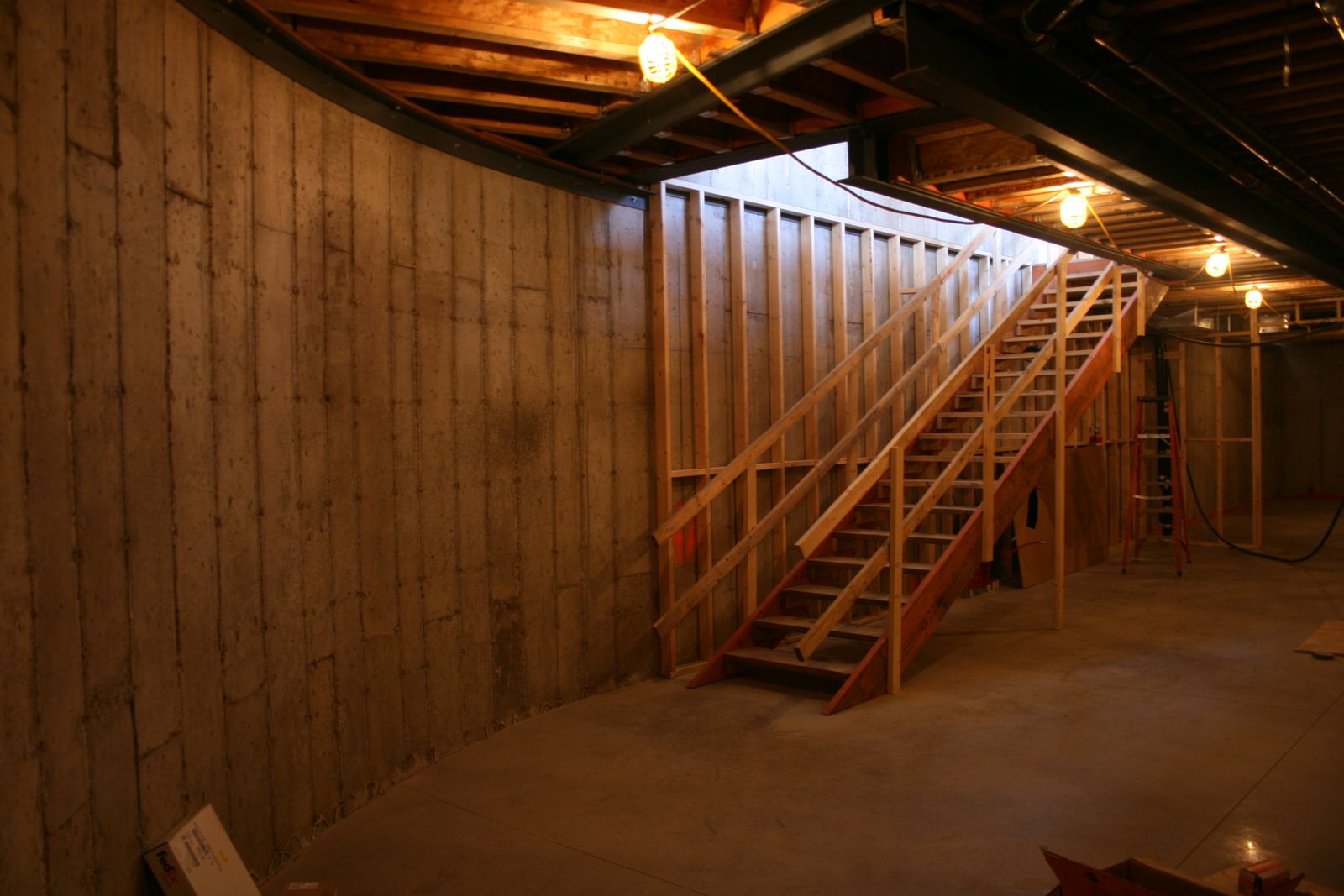
How to Fix Basement Moisture in Toronto's 100 Year Homes
Moisture in a basement is a common concern in older homes. When people think about basement water damage, they usually assume the cause is leaky plumbing. Yet thousands of older homes in Toronto have perfectly intact pipes but still suffer from water damage that leads to mold and mildew problems. So, what else causes basement moisture?
Apart from leaking pipes, there are two main causes of moisture in the basements of old Toronto homes: moisture that seeps in from the ground outside of the basement and moisture in the form of condensation that comes from inside the basement.
Water Damage from Outside
Why Water Damage Occurs
The foundations of old Toronto homes are built from stone, clay brick, concrete blocks, and occasionally poured concrete. Almost all homes were built without any exterior waterproofing and no weeping tiles (perforated or clay pipes) to weep away exterior water. Due to osmosis, water travels from wet areas to dry areas, and it is able to pass through all of the foundation materials listed above. So when it rains or snows and moisture seeps into the ground around your home, it will gradually make its way from outside your basement to inside the basement unless there is a barrier to stop it.
Signs of Water Damage from Outside
Obvious Water Damage
The amount of water that passes through the foundation walls depends on the moisture content of the soil outside of the foundation. In situations where the soil is saturated due to excessive rainfall, spring snowmelt, poorly located downspouts, and a grade that encourages water to travel toward the house, more water can travel through the walls, particularly if there are cracks in the foundation or mortar is missing. Water damage is easy to spot in this scenario because homeowners can see liquid water as well as water damage to finishes.
Less Obvious Water Damage
When the moisture content of the soil is lower, the foundation wall is still transferring water from outside to in but at a rate that does not result in liquid water on the interior. The inside of the foundation walls may even be dry to the touch, but there will usually be some white powder called efflorescence (a salt deposit remaining after the water evaporates) that’s visible on the inside surface of the foundation walls. In this scenario, moisture is still travelling through the foundation walls, but it evaporates as it reaches the surface, provided the walls are exposed to interior air (i.e., basements are left unfinished).
When Water in the Basement Isn’t a Problem
It may surprise you to learn that water in the basement isn’t always a problem. When older Toronto homes were built, homeowners didn’t usually live in their basements. Instead, basements were designed to house mechanical systems and provide additional storage space. Because of this, basement walls and floors were left as bare concrete, brick, or stone without insulation or finishes. This allows the basement to be breathable, keeping the environment healthy. Unfinished basements are cool in the summer, and the evaporation of outside water in the winter helps increase humidity levels throughout the home.
When Water Damage in the Basement Is a Problem
Moisture becomes a problem when people finish their basements with 2X4 walls, insulation, vapour barriers, drywalling, etc., without first waterproofing the foundation walls. DIYers and inexperienced contractors may assume that waterproofing isn’t necessary since walls are dry to the touch.
But when the foundation walls are no longer directly exposed to the basement air, the water that passes into the basement from outside no longer evaporates. Instead, it stays in its liquid form, dripping slowly down the walls and accumulating in wood sill plates, drywall, and trim. Ultimately, this leads to mildew and mold formations that create a musty smell and unhealthy air quality.
Two Ways to Waterproof Your Basement
To prevent this, basement walls must be waterproofed prior to being finished on the interior. Ideally, waterproofing is added to the basement’s exterior by excavating around the perimeter and applying a waterproofing system to the foundation walls. However, homeowners usually want to avoid this situation due to the cost and the damage to gardens, walkways, driveways, etc.
The other option is to apply waterproofing to the interior of the basement walls. This is counterintuitive, like patching a leaking boat on the inside rather than the outside. However, it makes financial sense, and if done properly, it will be 98% effective. With interior waterproofing, the foundation itself remains damp, and any water that leaches through will drip down behind a plastic membrane that has been installed from above grade to below the concrete slab.
A Note on Water Damage from Inside
It’s also possible for basement water damage to occur due to water that comes from inside the home. In this scenario, condensation from warm moist interior air can form on cold foundation walls and even on the interior of waterproofing membranes. To prevent this, a basement must be properly insulated -- ideally with two-pound spray foam -- and a vapor barrier must be installed.
Bring in a Professional
Finishing your Toronto basement can substantially increase your home’s usable square footage, but it’s essential to bring in a renovating expert who knows which steps to take to prevent serious issues like water damage, mold, and mildew. Investing in proper construction upfront will help you avoid costly repairs later.

